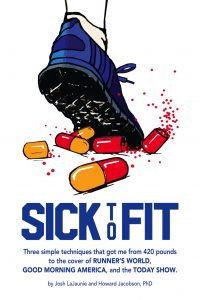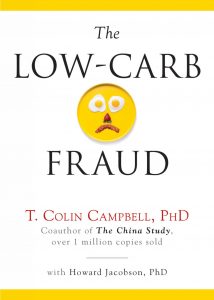For my money, Stephen Porges' Polyvagal Theory has done more to improve our ability to heal and grow and thrive as a civilization than any other scientific breakthrough of the past 50 years.
Its advances over prior understandings of the human nervous system, psychology, and experiences of states like well-being, happiness, and love – are profound. Paradigm-shifting. And, unlike a lot of theory, incredible practical and applicable to our everyday lives.
Stephen Porges, PhD, is a neuroscientist and professor of psychiatry. His scholarly contributions include work in the following fields (and this is straight from the bio on his website) “anesthesiology, biomedical engineering, critical care medicine, ergonomics, exercise physiology, gerontology, neurology, neuroscience, obstetrics, pediatrics, psychiatry, psychology, psychometrics, space medicine, and substance abuse.”
The Polyvagal Theory could easily have gotten lost in that staggeringly eclectic body of work. For us laypeople, the description of the focus and scope of the theory doesn't really capture its value and elegance: it “links the evolution of the mammalian autonomic nervous system to social behavior and emphasizes the importance of physiological state in the expression of behavioral problems and psychiatric disorders.”
Say what?
I don't want to spoil the interview for you by giving you the full theory here. But as a teaser, here's what I was able to do for clients after studying Polyvagal Theory and learning, practicing, and developing coaching methodologies based on its principles:
- help them understand their bewildering impulses to eat unhealthy food
- assist them in moving out of “stuck” and hopeless states
- empower them with simple daily exercises to unwind years and sometimes decades of trauma
- show them that their emotional roller coasters of rage, depression, and anxiety are perfectly understandable and even lifesaving – allowing them to gently explore other, more currently appropriate responses to life
- escape from the limitations of the cognitive-behavioral model of human functioning and find peace within their existing thought patterns
- guide them to forge new behaviors, new habits, and new paths in a newfound and precious sense of safety
Polyvagal Theory corrects the “fight or flight” theory of stress and the autonomic nervous system, and shows us a way out of “stress reactions” without the need to disregard or override our body's natural wisdom.
In our conversation, we explore the link between neurological assessments of safety (or lack thereof) in the environment, and our ability to make changes to our habits, behaviors, and lifestyles.
An added bonus: Stephen is what my grandmother would have called a “mensch.” Yiddish for, among other things, a good person, a wise person, a kind person. And as with lots of words from the old traditions, the term conveys something more, something deeper. There's a decency and humanity and humility and charm that Stephen possesses and shares freely, and it's infectious and calming.
Listen to Stephen talk, and you become a better, more understanding person. Screw flight or invisibility; that's a superpower worth having.
We did the video thing as well as audio, so you can watch Stephen's facial expressions as well as luxuriate in his prosody (if you're confused, you won't be by the end of the conversation).
Enjoy, add your voice to the conversation via the comment box below, and please share – that's how we spread our message and spread our roots.
Links
Dr Porges' website
The Polyvagal Theory: Neurophysiological Foundations of Emotions, Attachment, Communication, and Self-regulation
The Pocket Guide to the Polyvagal Theory: The Transformative Power of Feeling Safe
Looking for Transformational Change?
You know how when you discovered plant-based eating, you basically went, “Holy shit, how come the entire healthcare system isn't totally embracing this as one of the most powerful keys to disease prevention and reversal!”?
That's how I feel now about a psychological approach to transformational change called “Memory Reconsolidation.” Few psychologists have heard about it, and when they do hear the radical transformations it can bring about in a very short time, they're often skeptical to the point of disbelief.
But I've added Memory Reconsolidation work to my own coaching, and can attest to its amazing efficacy. So much so, that I'm devoting the next year to mastering it, studying with the best clinicians and teachers in the world, and then introducing it into health coaching through my trainings.
Right now, I want to triple my coaching practice to get more and more opportunities to do this work. And I'm lowering my fees – a lot – to make it easier for people to work with me.
If you're interested in working with me (and willing to commit to a minimum of 2 months), click the link below to open the form in a new browser tab and I'll get back to you within 3 business days.
Yes, I'm interested in Memory Reconsolidation Coaching.
You CAN Change Other People!
Well, that's what Peter Bregman and I claim in our provocative book of that title.
What we really mean is, you can help the people around you make behavioral changes in their own best interests. If you think you're powerless to help people change, it's because you've been going about it the wrong way.
Discover our straightforward, replicable process here: You Can Change Other People.
Audiobook: Use the Weight to Lose the Weight
 Listen to Josh LaJaunie and me narrate our latest audiobook, about how to start moving when you're obese.
Listen to Josh LaJaunie and me narrate our latest audiobook, about how to start moving when you're obese.
It's $10, and Josh and I split it evenly 🙂
Tip Jar
This podcast is not underwritten by advertising, so I can experience complete editorial autonomy without worrying about pissing off the person paying the bills. Instead, I pay the bills, with your help. It's free for those who can't afford to pay, and supported by those who can. You can contribute to the growth and improvement of the podcast by clicking the “Support on Patreon” or “Donate” buttons on the right to help out.
Music
The Plant Yourself Podcast theme music, “Dance of Peace (Sabali Don),” is generously provided by Will Ridenour, a kora player from North Carolina who has trained with top Senegalese musicians.
It can be found on his first CD, titled Will Ridenour.
You can learn about Will, listen to more tracks, and buy music on his website, WillRidenour.com.
Gratitudes
Thanks to Plant Yourself podcast patrons – Kim Harrison – Lynn McLellan – Brittany Porter – Dominic Marro – Barbara Whitney – Tammy Black – Amy Good – Amanda Hatherly – Mary Jane Wheeler – Ellen Kennelly – Melissa Cobb – Rachel Behrens – Tina Scharf – Tina Ahern – Jen Vilkinofsky – David Byczek – Michele X – Elspeth Feldman – Leah Stolar – Allan Kristensen – Colleen Peck – Michele Landry – Jozina – Sara Durkacs – Kelly Cameron – Janet Selby – Claire Adams – Tom Fronczak – Jeannette Benham – Gila Lacerte – David Donohue – Blair Seibert – Doron Avizov – Gio and Carolyn Argentati – Jodi Friesner – Mischa Rosen – Michael Worobiec – AvIvA Lael – Alicia Lemus – Val Linnemann – Nick Harper – Bandana Chawla – Molly Levine – The Inscrutable Harry R – Susan Laverty the Panda Vegan – Craig Covic – Adam Scharf – Karen Bury – Heather Morgan – Nigel Davies – Marian Blum – Teresa Kopel – Julian Watkins – Brid O'Connell – Shannon Herschman – Linda Ayotte – Holm Hedegaard – Isa Tousignant – Connie Haneline – Erin Greer – Alicia Davis – Heather O'Connor – Carollynne Jensen – Sheri Orlekoski of Plant Powered for Health – Karen Smith – Scott Mirani – Karen and Joe Crabtree – Kirby Burton – Theresa Carrell – Kevin Macaulay – Elizabeth Rothschild – Ann Jesse – Sheryl Dwyer – Jenny Hazelton – Peter W Evans – Dennis Bird – Darby Kelly – Lori Fanney – Linnea Lundquist – Emily Iaconelli – Levi Wallach – Rosamonde McAtee – Dan Pokorney – Stephen Leinin – Patty DeMartino – Mike and Donna Kartz – Deanne Bishop – Bilberry Elf – Marjorie Lewis – Tricia Adams – Nancy Sheldon – Lindsey Bashore – Gunn Marit Hagen – Tracey Gulledge – Lara Hedin – Meg from Mamasezz – Stacey Stokes – Ben Savage – Michael K – David Hughes -Coni Rodgers – Claire England – Sally Robertson – Parham Ganchi – Amy Dailey – Brian Tourville – Mark Jeffrey Johnson – Josie Dempsey – Caryn Schmitt – Pamela Hayden – Emily Perryman – Allison Corbett – Richard Stone – Lauren Vaught of Edible Musings – Erin Hastey – Sean Owens – Sagar Naik – Erika Piedra – Danielle Roberts – Michael Leuchten – Sarah Johnson – Katharine Floyd – Meryl Fury – for your generous support of the podcast.
Disclosure
This post may contain amazon affiliate links. I may receive compensation from your actions on such links. It don't cost you a dime, tho.


 Listen to Josh LaJaunie and me narrate
Listen to Josh LaJaunie and me narrate 




Hi there,
how can I access the audio program Stephen Porges has mentioned?
Thanks